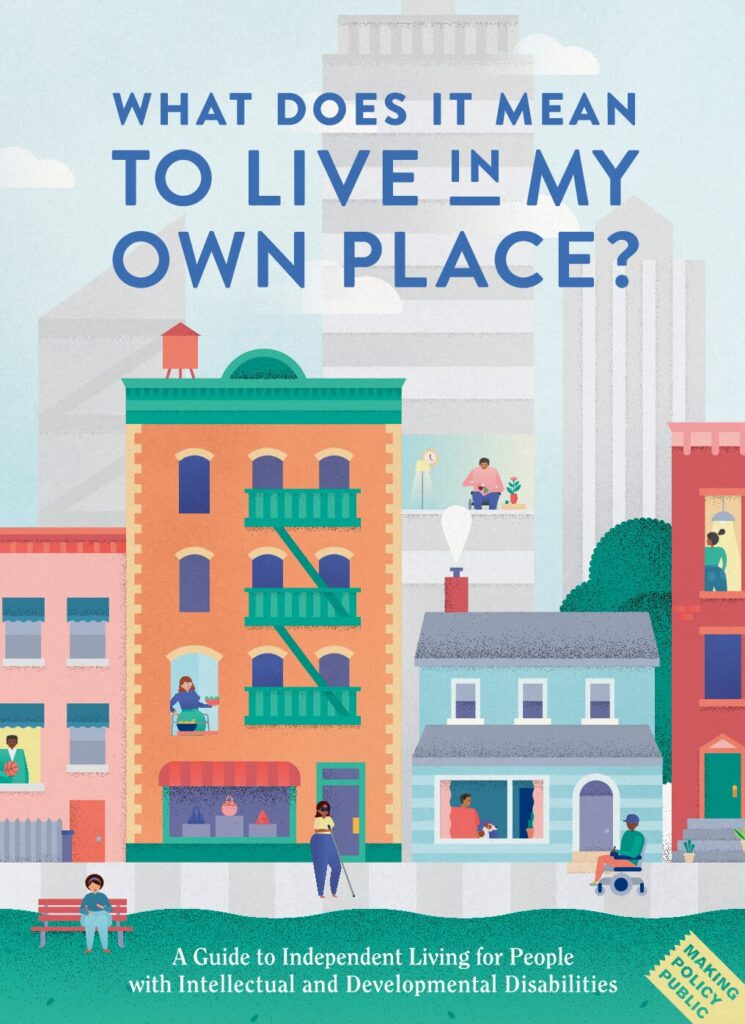
HOUSING RIGHTS
People with intellectual and developmental disabilities, like all Americans, have a right to live in their own homes within communities. Children and youth belong with families. Adults should control where and with whom they live, including having opportunities to rent or buy their own homes, and must have the freedom to choose their daily routines and activities.
OPWDD Housing Options and Other Resources
The NYS Office for People with Developmental Disabilities (OPWDD) and provider agencies offer residential opportunities to people with developmental disabilities that help them live as independently as possible in the community.
- Money Follows the Person Program and Integrated Supportive Housing
- Housing Subsidy Program
- Residential Options
- Informational Letter: Privacy and Lockable Doors
Federal, state, and local fair housing and anti-discrimination laws protect individuals from discrimination. Discrimination based on certain protected characteristics, including (but not limited to) disabilities, is unlawful.
Reasonable Accommodations
Reasonable accommodations are changes in rules, policies, practices, or services that enable a person with a disability to have an equal opportunity to use and enjoy a dwelling (or home). A person with a disability must notify the housing provider if they need a reasonable accommodation, and the housing provider must grant the request if it is reasonable. There must be a connection between the disability and the need for an accommodation.
Typically, accommodations will be a matter of negotiating what will serve the housing provider and the person best.
Examples of reasonable accommodations include:
- Assigning a person with a disability a reserved parking spot near their housing unit even though tenant parking is generally on a first-come, first-served basis.
- Allowing a person with a disability to keep an assistance animal despite a “no pets” policy.
- Allowing a tenant who receives disability checks on the fifth of every month to pay rent after the first of the month without a late fee.
Reasonable Modifications
Reasonable modifications are changes in the physical structure of a dwelling that enable a person with a disability an equal opportunity to use and enjoy that dwelling (home). In many cases, individualized modifications to a dwelling (home) enable a person with a disability to live in a space they would otherwise be physically unable to live in. This includes the interior and exterior of a building or a unit, including public and common-use areas.
Examples of reasonable modifications include allowing a tenant:
- Who uses a wheelchair to install ramp access to the home’s entrance
- To install grab bars in the bathroom
- To install visual or tactile (touch) alert devices
Housing Navigation
Housing Navigation is a focused, outcome-oriented, and time-limited service that helps people who need or want to move to community-based housing to obtain and maintain stable, long-term housing of their choice.
Housing Navigation services may include:
- Developing an individualized person-centered housing plan
- Developing an individual housing budget, including optimizing benefits and financial consulting
- Implementing a housing action plan, including the person’s housing vision and budget
- Finding a home in the community of choice
- Coordinating a move
- Creating a housing sustainability plan and transition to ongoing service providers
- Finding housing crisis resolution
Care Manager/Care Coordinators can help you search for Housing Navigators in your area on the New York Housing Resource Center for People with Intellectual/Developmental Disabilities website. Also, check out the Housing Resource Guide Ebook and Know Your Rights as a Renter.
Click on the image above to read the brochure.
